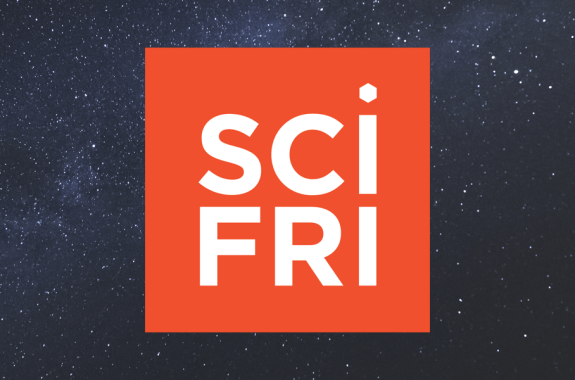August 1, 2025
A workout can be a mental health boost—or a psychological strain. Two exercise researchers discuss what physical activity does to your mind. Plus, in a new book, mathematician Adam Kucharski traces our relationship to truth from the ancient Greeks to our AI reality. And, a researcher who studies the effects of extreme cold on the body throws a few drops of icy water on cold plunges.
July 25, 2025
Newly released images from the Parker Solar Probe are so detailed that scientists can see explosions and the flow of solar winds. Plus, menopause research began in earnest about 30 years ago. Two experts want you to know that we’ve actually learned a lot—and it’s not all bad. And, how fast did dinosaurs run? A longstanding equation for dino speed may be wrong.
July 18, 2025
Across the country, premiums are rising and home insurers are pulling out of markets that are most at risk for climate change-fueled disasters. Plus, the New World Screwworm is creeping north, threatening cattle in Mexico and the US. And, a new book explores the poisonous concoctions in Agatha Christie’s murder mysteries and the science behind how they kill.
July 11, 2025
A century after a teacher went on trial for teaching evolution, the role of science in the classroom and in society remains in contention. Plus, tick seasons are getting worse, raising concerns about the risk of Lyme disease. Dogs can get vaccinated for it. Why can’t humans? And, as disasters escalate, what’s the future of FEMA?
July 4, 2025
In this archival show, undersea archaeologist Robert Ballard shares adventures from beneath the waves and his love for deep-sea exploration. Plus, research suggests that we share parts of our microbiome with people in our social networks beyond family members. And, a book uses science and the benefit of hindsight to figure out how to survive some of history’s biggest disasters.
June 27, 2025
In his new book, a former FDA commissioner unpacks the latest science on metabolism, weight loss, and how GLP-1 drugs actually work. Plus, the first images from the brand new Vera C. Rubin Observatory have finally been unveiled. And, researchers have observed a population of orcas that use kelp tools to scratch their backs.
June 20, 2025
Picking a sunscreen can be overwhelming. Experts tell us what to look for, and what ingredients matter. Plus, is the Hubble constant—a key part of how we measure our universe—having a crisis? Some cosmologists say yes. And, the new book “The Science of Revenge” explores the neuroscience of revenge, and how its addictive potential could make it dangerous.
June 13, 2025
US Health Secretary RFK Jr. fired an entire panel that recommends vaccines. Plus, the EPA moves to expedite cleanup of Superfund sites amid cuts. Former President Joe Biden’s diagnosis with an aggressive form of prostate cancer has put a spotlight on prostate cancer screening.
June 6, 2025
A mysterious polio-like disease could challenge our healthcare infrastructure. Plus, zooming in on non-cancerous cells in and around tumors. And, collagen from a fossilized bone fragment can identify the animal it came from, which may help scientists better understand extinction events.
May 30, 2025
Government cuts have left NSF funding at the lowest level in decades. What does that mean for science research? Plus, recent outages at Newark Airport highlighted the challenges facing air traffic controllers. What’s the science underpinning air safety? And, Scientists used gene-editing technology to create “Peter Pan” tadpoles that would eat the eggs of Australia’s cane toads—and never grow up.
